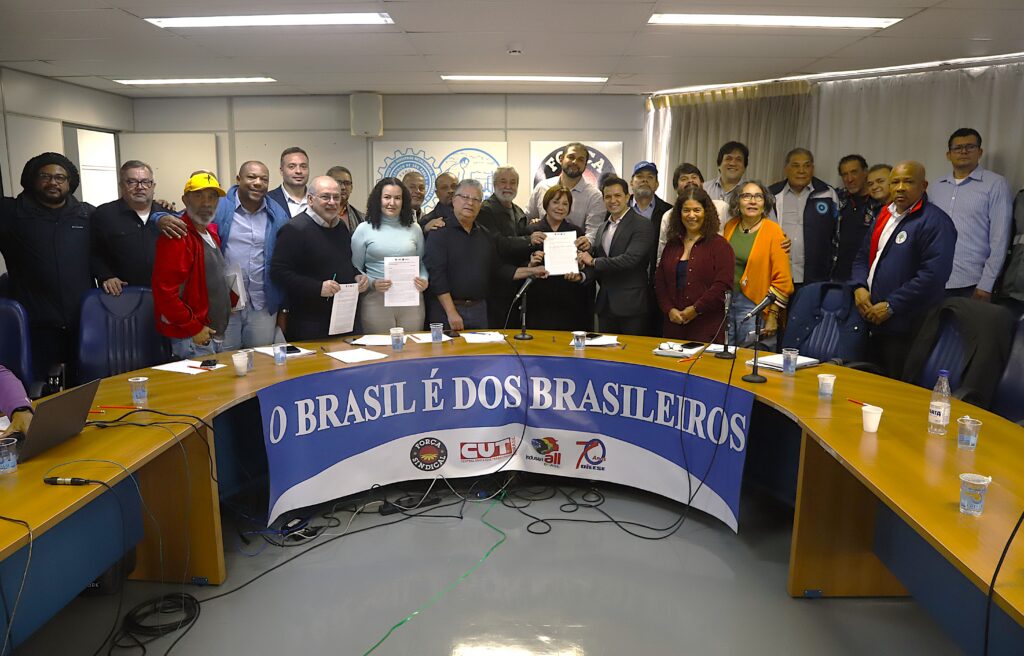Read this article in:
English
23 July, 2025IndustriALL Brazil, a national organization comprising of trade unions from all industrial sectors, including organizations affiliated to IndustriALL Global Union- CUT and Força Sindical, together with the inter-union department of statistics and socioeconomic studies – DIEESE, met with the industrial development secretary of the ministry of development, industry, trade and services (MDIC), Uallace Moreira Lima, to present a series of demands and proposals to help strengthen the new industry Brazil (NIB) plan, advocating a reindustrialisation strategy that focuses on sustainable development and places workers at its centre.
During the meeting, the union representatives presented the proposals developed during the sectoral workshops held with the support of the project to strengthen trade unions for a Just Transition, coordinated by IndustriALL Global Union in cooperation with the Finnish Trade Union Solidarity Centre – SASK. Five priority measures were set out to guide the country’s industrial policy and position it as a cornerstone of the national sustainable development strategy for the period up to 2033.
The proposals focused on vocational training and decent work, strengthening mature industrial regions, new criteria for access to finance, broadening representation in the private sector consultative council (Conex) and creating a working group to assess the impact of the tariffs imposed by the United States.
The need was emphasized to promote training and professional qualifications in strategic sectors, in line with social justice and the energy and technological transition. A territorial approach to the implementation of the NIB was also advocated, to ensure that public policies reach small and medium-sized industrial enterprises, which make up a large part of Brazil’s industrial fabric.
The unions also called for access to public financing to be subject to companies’ respect for labour rights, collective bargaining and environmental and social commitments. Another key proposal focused on the need to expand Conex to include union representatives, who are currently excluded from the consultative body.
Lastly, they suggested that a working group be created with government, employer and trade union representatives to analyze the impacts of the US tariffs on strategic industrial sectors such as steel and aluminium. This group would also work in coordination with Brazilian representatives in international forums such as the WTO, Mercosur, BRICS and G20, with a view to defending reindustrialisation, industrial sovereignty and national interests.
The president of IndustriALL Brazil, Aroaldo Silva, highlighted the importance of unity within the trade union movement and its key role in shaping public policy:
“Trade union involvement is essential to developing industrial policies that truly respond to workers’ interests… These proposals reinforce the unions’ commitment to building a strong and sustainable industry.”






